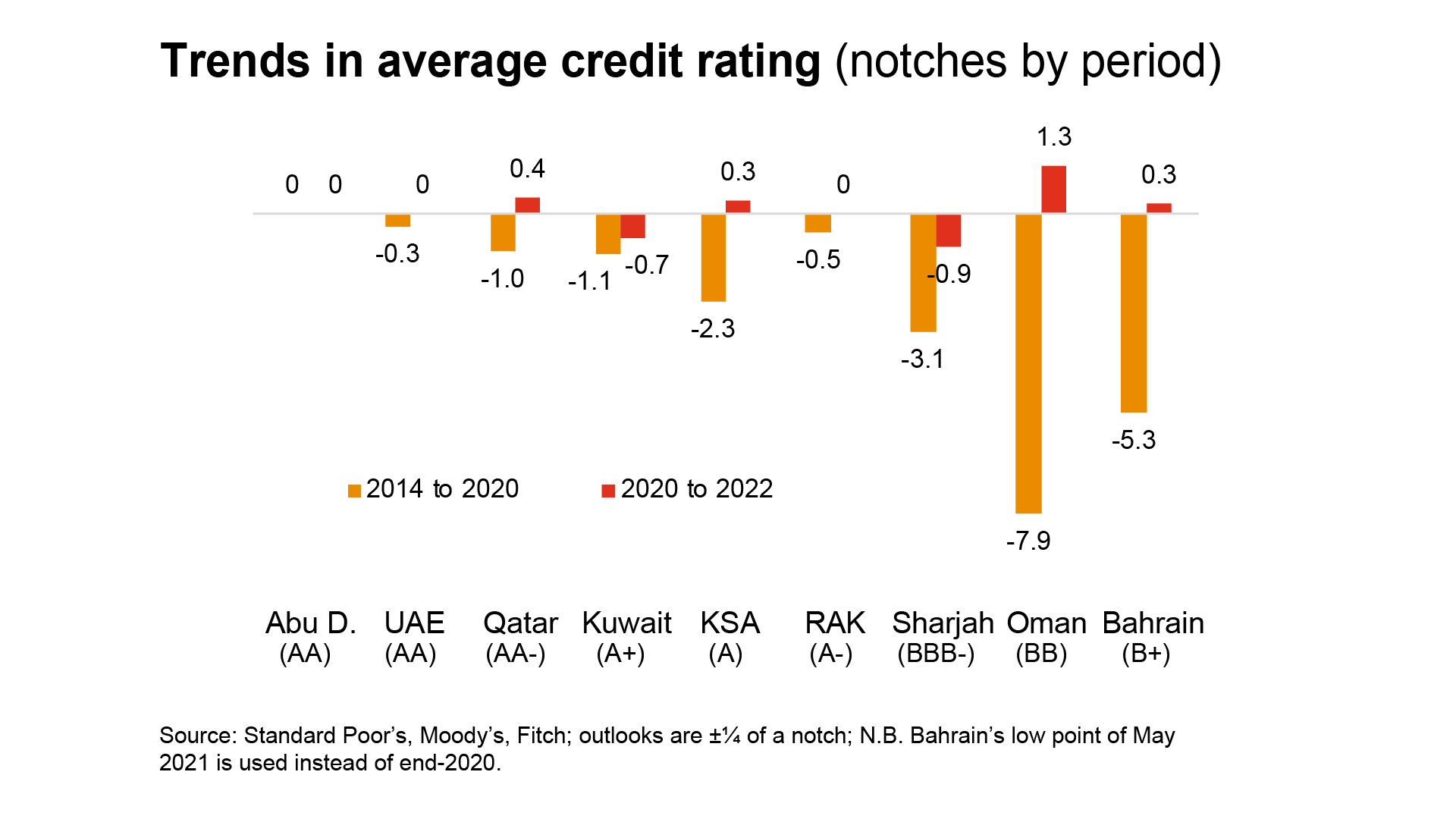
Oman's credit rating was raised to "Ba1" from "Ba2," with the outlook shifted from stable to positive. This upgrade underscores the country's enhanced fiscal discipline, debt reduction efforts, and broader economic diversification strategies that have been implemented under Sultan Haitham bin Tariq’s leadership.
Moody’s cited Oman’s fiscal consolidation measures as a critical factor in the rating upgrade. These measures include the introduction of a value-added tax (VAT), subsidy reforms, and a reduction in government spending. The successful implementation of these policies has contributed to a decline in the budget deficit and a significant improvement in the public debt-to-GDP ratio.
In addition to fiscal reforms, Oman’s oil and gas sector has played a pivotal role in the country’s economic recovery. Higher global oil prices have boosted government revenues, allowing Oman to reduce its reliance on borrowing and stabilize its financial position. The recovery in the oil market has also supported the country’s efforts to build foreign exchange reserves and strengthen its external balance sheet.
However, Moody’s also highlighted the importance of continued fiscal discipline and economic diversification for sustaining Oman’s creditworthiness in the long term. While the government has made progress in reducing its dependency on oil revenues, further efforts are needed to develop non-oil sectors, such as tourism, logistics, and manufacturing. The successful expansion of these sectors will be essential for reducing economic volatility and ensuring sustainable growth.
Oman's economic reforms have also been supported by a broader strategy to attract foreign investment and improve the business environment. The government has introduced several initiatives to enhance the ease of doing business, streamline regulatory processes, and provide incentives for foreign investors. These efforts are expected to contribute to long-term economic stability and job creation, particularly for the country’s young population.
Despite these positive developments, challenges remain. Oman’s economy is still vulnerable to fluctuations in global oil prices, and the country faces structural challenges such as high youth unemployment and a large public sector. The government’s ability to address these issues will be crucial for maintaining investor confidence and achieving long-term economic resilience.
Moody’s upgrade comes at a time when Oman is seeking to bolster its international financial standing. The improved credit rating is likely to reduce the cost of borrowing for the government, making it easier to finance development projects and infrastructure investments. It may also enhance Oman’s attractiveness to foreign investors, who are increasingly looking for stable and secure investment opportunities in the region.
Oman's leadership has expressed its commitment to continuing the path of reform and ensuring the country’s economic stability. The government’s medium-term fiscal plan, which includes further spending cuts and revenue-enhancing measures, is expected to support the ongoing consolidation of public finances.
As Oman moves forward, the focus will be on maintaining fiscal discipline, diversifying the economy, and managing external risks. The success of these efforts will determine the country’s ability to navigate future economic challenges and sustain its improved credit profile.
The upgrade by Moody’s is a testament to the progress Oman has made in strengthening its fiscal framework and implementing necessary reforms. It also reflects growing confidence in the country’s economic outlook and its ability to achieve sustainable growth in the years ahead.
Topics
Gcc
